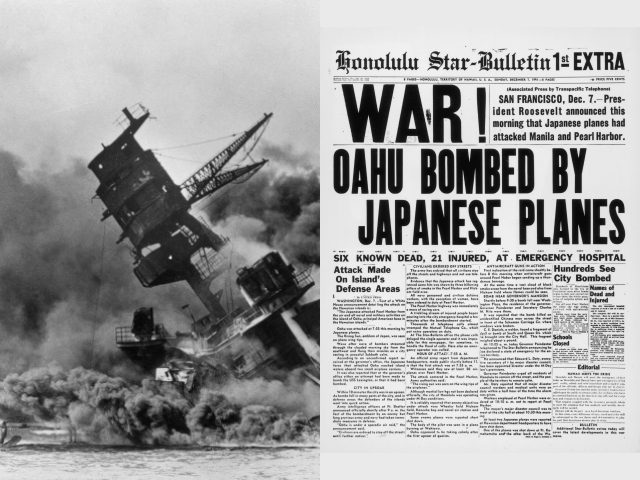"Man is like a breath; his days are like a passing shadow."
(Psalm 144:4)
On the morning of Sunday, December 7, 1941 the Reverend Peter Marshall
preached to a regiment of midshipmen at the US Naval Academy in Annapolis.
A strange feeling had come over him that day which compelled him to change
the subject of the sermon he had planned for the service. He chose instead to
base his homily on a passage from the Book of James which attests,
"Yet you do not know the least thing which may happen tomorrow.
What is the nature of your life? You are really but a wisp of vapor,
a puff of smoke, a mist, that is visible for a little while
and then disappears into thin air."
(James 4:14)
Later that same afternoon, as Peter Marshall was driving back to
Washington DC with his wife, Catharine, a program on the car radio
was interrupted by an announcement that the United States Naval Base
at Pearl Harbor, Hawaii had been attacked by Japan.
America was now at war.
In her best-selling book about her husband's life and ministry work,
"A Man Called Peter" Catherine Marshall recalled that fateful December
day when she wrote, "Within a month, many of the boys to whom
Peter Marshall had just preached would go down to heroes' graves in
strange waters. Soon all of them would be exposed to the risks and
dangers of war, and Peter Marshall, under God's direction, that
very morning, had offered them the defining metaphor
about the reality of eternal life."
" Pearl Harbor Prayer"
"A Man Called Peter"
20th Century Fox
"Greater love has no one than this, that he lay down his life for his friends."
(John 15:13)
ago today, and to those who survived and went on to fight in the
war, thank you for your courage and for your service to America.


No comments:
Post a Comment